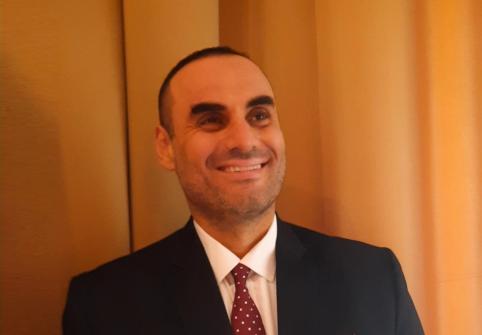News
A Survivor’s Guide to Graduate School
30 Dec 2020
In this Q&A, Dr. Mowafa Househ, associate professor at the College of Science and Engineering (CSE) at Hamad Bin Khalifa University (HBKU), offers his insights on the best pathways for graduate students to navigate academic life, especially with getting published. Dr. Househ has more than 200 publications to his name and has edited 10 books in the field of health.
Why is it important for students to get published?
I get a lot of students and professionals telling me they want to get their work published. It’s not easy, they have to know that, but it’s all about motivation.
One of the mistakes I made was not understanding the impact of research publications until I’d finished my PhD, when I realized that to survive in the academic world it’s ‘publish or perish’. Now the model is changing toward ‘deploy or die’, emphasizing the need to demonstrate your idea, get feedback, and then deploy it. We see HBKU moving toward this model, just like many other well-established universities. Years ago it was fine just to publish but now, especially in science and technology, healthcare, and similar fields, you have to deploy your idea in the real world to have an impact in society and across the world, but also to generate revenue and make the idea sustainable.
For students who ask why publishing is still important: Number one, you anticipate that you will advance science and make a difference in society. Number two, and what many students look for, is that it looks good on your CV. It gives you an edge and makes a difference to any recruiter. It's going to be one of the determining factors that lets people know this person is able to work in a team, organize their thoughts, and write and speak in a logical, coherent and consistent way.
Many students who end up getting published gain a sense of significance and even become hooked on the publication process as a result. Finding their citations alongside their professors motivates them to do more research. I remember years ago, I helped one of my students get his paper accepted at a conference, but his manager would not let him attend. He went anyway and when his efforts became known to the CEO, he was actually promoted. He went on to conduct more research and it opened so many professional opportunities. He’s very thankful that I helped him start that journey.
So, it’s about motivation and dedication, how eager you are to make a difference in this world and to be recognized for your work. One very key thing is that while people are not always rewarded by their organization, publishing a research paper will build credibility and recognition. Having the journal publish your name and ‘going global’ gives people that sense of significance that they may not be able to find elsewhere.
What lessons can graduate students learn from getting published?
Because publishing a paper is a very time-consuming effort, it also teaches students about patience. You learn about rejection, people telling you your paper is not good enough, and that you need to change and modify it. When you send a paper for review, you don’t know who the reviewers are and their feedback will not always be positive. This is the way it is.
That’s where mentorship comes in, because I could tell others that this had happened to me many times. I was very sensitive early on in my career, but over time I understood that this is a normal part of the process and you learn to pick yourself up and keep going. It just sums up academia.
You will face many obstacles in your life, many times within an academic setting. What will keep you going is that drive to make a difference in your community and your research field. So when you’re at your worst and questioning yourself, your faith can inspire you and keep you grounded.
How can graduate students find the right mentor?
Students can approach a professor and ask to join their research group. When I see a student is dedicated and wants to learn, I’m willing to invest more time in them. Having the right mentor is important – mentorship can be a ‘win-win’ situation for both professors and students. Students should work with academics who have integrity, and they can get to know the mentors better through their publications and by inquiring on their abilities.
When any of my post-doctoral students are demotivated, I’m able to reassure them and show empathy because I’ve been through it. This is also one way to build a team that’s loyal to the institution’s vision. It is good to train students to be better than yourself.
How is academic life unique at HBKU?
HBKU provides a myriad of opportunities to showcase your research and have community impact, and the university’s leadership is very supportive. Universities in the Middle East are mostly teaching-focused, but HBKU is research and impact-focused, which is demanding but highly rewarding.
My spiritual beliefs and the fact that we are making a difference in the world are very important motivators for me. I find that a faith-based inspiration to publish, to serve, and make a difference as a researcher can keep you going against all odds.
